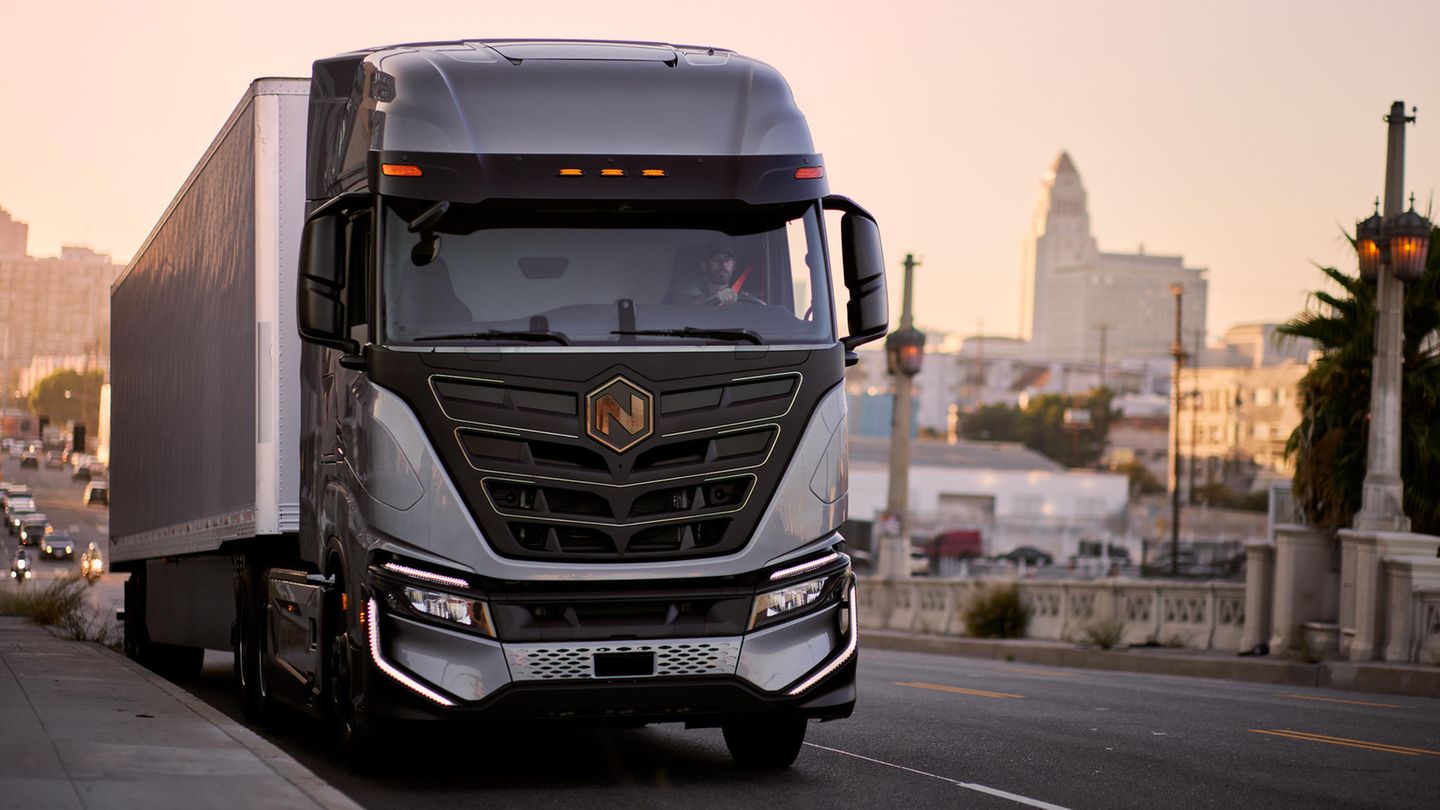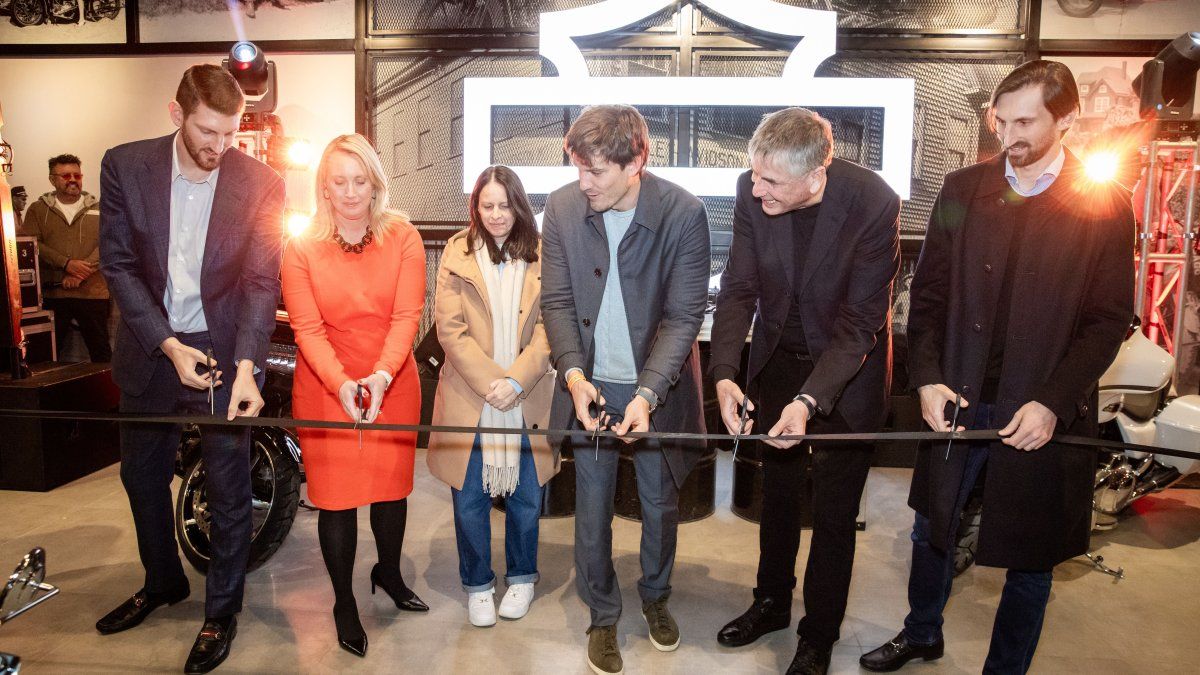Together with Iveco, Nikola Motor wanted to revolutionize the truck sector with climate-friendly drives. After around 3.5 years, the joint venture in Germany is now over. Why Nikola Motor is withdrawing from Europe and why both manufacturers want to go their separate ways.
When Nikola Motor and Iveco announced their joint venture in September 2019, they had big goals: they want to jointly develop and manufacture commercial vehicles with hydrogen fuel cells and batteries. This expresses the striving for something in which the automotive industry is clearly ahead: the establishment of vehicles with climate-friendly drives.
The battery-electric Nikola Tre (BEV), which is the first truck to emerge from the joint venture, is to be followed by other class 8 trucks. But the cooperation at the Ulm site is now over, as Nikola Motor and Iveco announced last week – albeit initially with reservations; the plans still have to be approved by the regulatory authorities. All milestones have been reached “in order to use the respective know-how for the introduction of locally emission-free Class 8 heavy-duty trucks in North America and Europe,” the statement said.
Iveco takes full control of the joint venture. According to the agreement, the vehicle manufacturer will receive a license to further develop the vehicle control software for the jointly developed BEV and FCEV (hydrogen-electric drive) semitrailer tractors. In return, Nikola Motor will receive the license for the so-called Iveco S-WAY technology, on which the battery-electric Nikola Tre is based, for North America and related components. In addition, Nikola Motor will become a co-owner of the first generation of the electric drive train “eAXLE”. In addition, Iveco will pay Nikola Motor $35 million in cash and acquire an additional 20 million shares in the truckmaker.
Focus on the respective home market
According to a press release, a “new phase of the partnership” is to begin. In fact, the end of the joint venture concluded in September 2019 means that the two manufacturers will primarily go their separate ways in the future. Nikola Motor is now concentrating entirely on the North American market, while Iveco is concentrating on the European market – two of the most important vehicle markets of all. So why are the two giving up a collaboration and thus a second foothold in an important market?
“We can now concentrate better on our respective markets,” said Iveco spokesman Patrick Wanner star. Iveco has no trucks on the market in the US and plans to produce the Iveco BEV and FCEV semitrailer tractors for the European market in the Ulm production plant, explains Wanner.
Nikola Motor, on the other hand, tried to establish its vehicles in Europe. Last fall, Nikola Motor CEO Michael Lohscheller spoke to the company about plans to replace diesel trucks with climate-friendly vehicles star. So far, the US company has launched the Tre BEV electric truck in its home market. With the Tre FCEV, Nikola Motor’s first truck with hydrogen fuel cell technology and Nikola Motor’s second vehicle at all are to follow in the second half of the year.
Nikola Motor needs to cut costs
As “” reported in February, the truck manufacturer fell well short of its delivery targets last year. With 133 units of the Tre BEV delivered, only a quarter of the original target was achieved. In addition, Nikola Motor only delivered 20 trucks to dealers. The reason: a sharp drop in demand.
According to Lohscheller, things should be better this year. There is a “rebound” in retail sales compared to 2022, the German executive said when releasing Q1 2023 earnings earlier this month. According to this, there are currently 140 orders for the FCEV, which should roll out to customers in the fourth quarter of the year.
Nevertheless, Nikola Motor apparently has to cut costs. “We must continue to focus on the areas in which we have competitive and first-party advantages. For this reason, we are selling our stake in the European production joint venture to the Iveco Group,” formulated Lohscheller, once Opel boss. He also mentioned the US subsidy program Inflation Reduction Act, which provides billions in subsidies for battery producers operating in the US.
H2 clippers
The Return of the Hindenburg: Airship flies with explosive hydrogen
Truck manufacturer is increasingly basing its business on hydrogen drive
That is why Nikola Motor focuses its business fully on its home market. The Arizona-based company introduced its new Hyla brand in February. She is responsible for the company’s energy business around hydrogen infrastructure. With this, Nikola Motor intends to increasingly focus on hydrogen propulsion. According to the plans, 60 hydrogen filling stations are to be installed by 2026; first in California and the Canadian province of Ontario.
Nikola Motor recently announced a new partnership with energy company Voltera. Together, up to 50 Hyla hydrogen stations are to be installed in North America over the next five years. This aims to create “the largest open network of commercial hydrogen fueling stations” in the country. Even though Nikola Motor is now fully geared to the US market, the Tre electric truck will remain in Europe; it finds its way into the local market in a European version via Iveco.
Sources: ,
Source: Stern
I’m a recent graduate of the University of Missouri with a degree in journalism. I started working as a news reporter for 24 Hours World about two years ago, and I’ve been writing articles ever since. My main focus is automotive news, but I’ve also written about politics, lifestyle, and entertainment.




